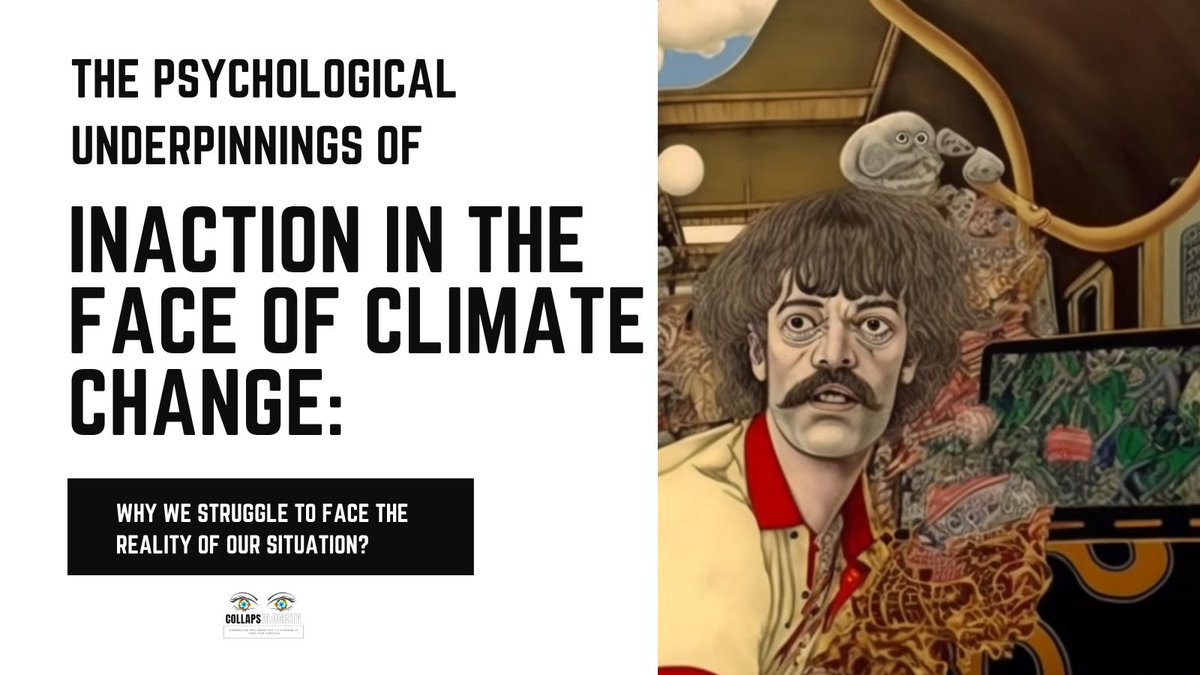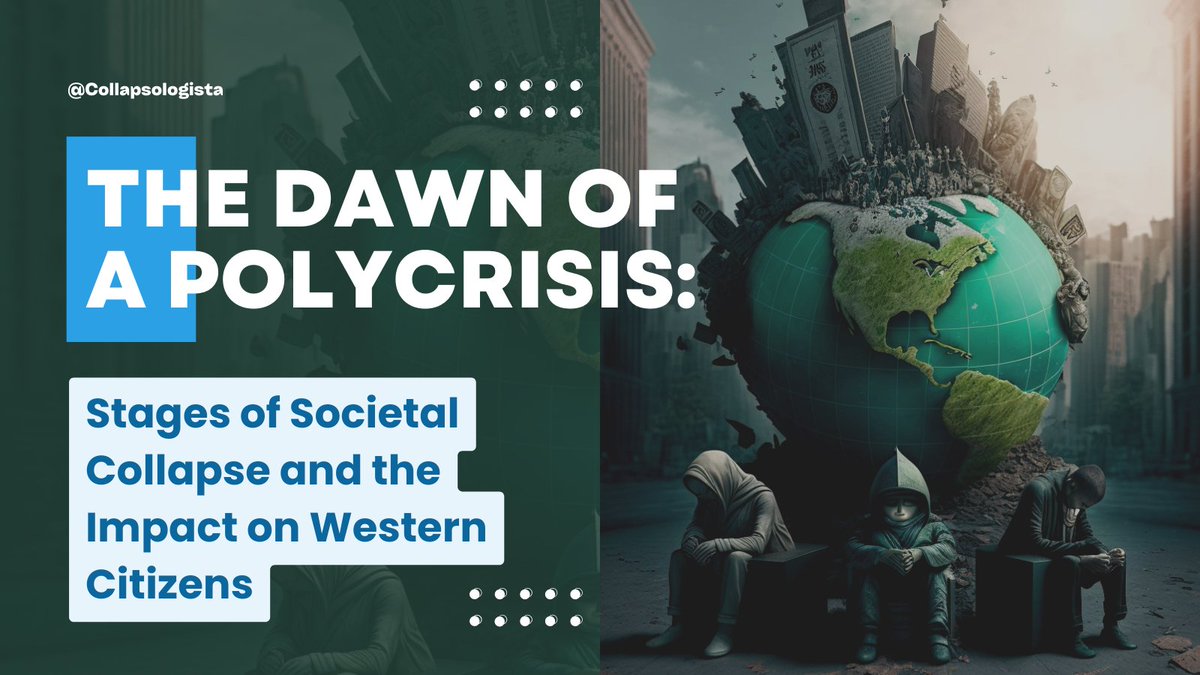🧵Climate change is one of the most significant challenges humanity has faced in the 21st century. Despite the growing body of scientific evidence pointing to the severity of the problem, there has been a general lack of urgency in addressing this global crisis. This 🧵 delves👇 

into the psychological underpinnings of #inaction in the face of climate change, and why we struggle to confront the reality of our situation. The exploration of cognitive biases, socio-political factors, and emotional responses will shed light on the complexities of human 👇
human behavior and the difficulty in mobilizing collective action.
Cognitive Biases
1️⃣Confirmation Bias: Confirmation bias refers to the tendency to search for and interpret information in a way that confirms one's pre-existing beliefs. In the context of climate change, those👇
Cognitive Biases
1️⃣Confirmation Bias: Confirmation bias refers to the tendency to search for and interpret information in a way that confirms one's pre-existing beliefs. In the context of climate change, those👇
who are skeptical or deny the existence of the problem are more likely to seek out information that supports their views, #ignoring evidence to the contrary. This bias perpetuates the spread of misinformation, fostering doubt and inaction.👇
2️⃣Temporal #Discounting: This cognitive bias pertains to the human tendency to prioritize immediate rewards over long-term benefits, even when the latter is more significant. In relation to climate change, the consequences of inaction are often perceived as distant and abstract👇
whereas the costs of addressing the issue seem immediate and tangible. This temporal disconnect leads to procrastination and a failure to adequately respond to the crisis.
3️⃣Optimism Bias: Optimism bias is the inclination to believe that negative events are less likely to happen
3️⃣Optimism Bias: Optimism bias is the inclination to believe that negative events are less likely to happen
to oneself than to others. When it comes to climate change, people may underestimate the severity and likelihood of the impacts, assuming that they will not be personally affected. This bias can lead to complacency and a lack of motivation to take preventative action.👇
Socio-Political Factors
1️⃣Groupthink and Social Identity: Social identity theory posits that individuals derive a sense of self-worth from their affiliation with social groups. As such, they may conform to group norms and adopt the group's perspective on issues, including👇
1️⃣Groupthink and Social Identity: Social identity theory posits that individuals derive a sense of self-worth from their affiliation with social groups. As such, they may conform to group norms and adopt the group's perspective on issues, including👇
climate change. Groupthink can exacerbate this conformity, as individuals suppress their dissenting opinions to maintain harmony within the group. In some cases, this can result in collective denial and inaction on climate change.
2️⃣Political Ideology: Political ideology can also shape one's perception of climate change. In many countries, there is a partisan divide on the issue, with conservatives more likely to doubt the existence and severity of climate change compared to liberals. This political
polarization hinders productive dialogue and creates barriers to bipartisan cooperation on mitigation and adaptation efforts.
Emotional Responses
1️⃣Fear and Anxiety: The enormity and complexity of the climate crisis can evoke feelings of fear and anxiety, which may contribute👇
Emotional Responses
1️⃣Fear and Anxiety: The enormity and complexity of the climate crisis can evoke feelings of fear and anxiety, which may contribute👇
to avoidance and inaction. When individuals feel overwhelmed by the problem, they may engage in denial or disengagement as coping mechanisms, rather than confronting the issue and taking action.
2️⃣Guilt and Shame: Guilt and shame can also arise from the realization that one's 👇
2️⃣Guilt and Shame: Guilt and shame can also arise from the realization that one's 👇
actions, or lack thereof, contribute to climate change. To alleviate these uncomfortable emotions, individuals may minimize the issue or deflect responsibility onto others, impeding the acknowledgement of the problem and the pursuit of solutions.
So, the psychological
So, the psychological
underpinnings of inaction in the face of climate change are complex and multifaceted. Cognitive biases, socio-political factors, and emotional responses all contribute to our struggle to face the reality of our situation. To overcome these barriers, it is crucial
to foster greater awareness and understanding of these psychological processes, as well as promote dialogue, cooperation, and collective action. Only then can we hope to rise to the challenge and address the existential threat.
• • •
Missing some Tweet in this thread? You can try to
force a refresh

 Read on Twitter
Read on Twitter











